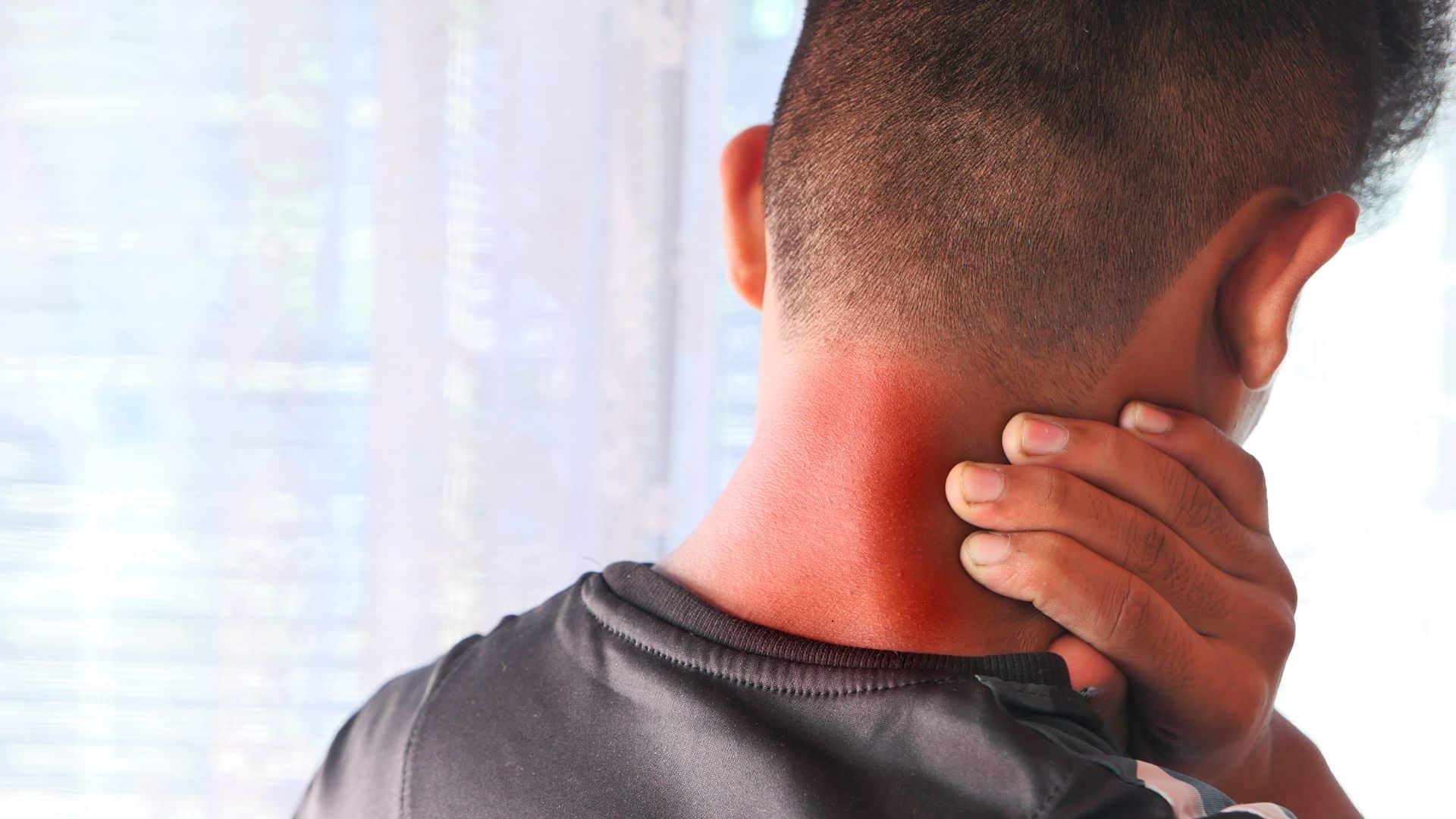The Different Types of Neck Pain – And What Causes Them

Do you often suffer from neck pain? Many of us do, and it can range from mild discomfort to severe pain. Identifying the type of neck pain you’re experiencing is essential as it can help your healthcare professional determine the cause and best treatment plan.
For example, stiffness in the neck is one of the most frequent kinds of neck pain, typically prompted by using terrible posture, repetitive motions like typing or texting on your phone, or slumbering in an awkward position.
Read more: How To Get Rid of Stiff Neck?
Several sorts of neck aches can be identified, whether or not you have a stiff neck or a sharp ache radiating up the again of your head.
1) Muscle Strain
When your neck muscle groups turn out to be overworked and tired due to stress or injury, it can result in aches and anxiety in the neck area.
Poor posture, repetitive movements, immoderate bodily activity, or an accident commonly motive this kind of neck pain.
Symptoms can encompass tenderness, stiffness in the neck muscle mass, and a stupid ache.
Treatment commonly entails the usage of cold and heat compresses, massage therapy, over-the-counter medications, and rest.
2) Whiplash
Whiplash is one of the most frequent sorts of neck pain. It commonly happens after a forceful back-and-forth head motion which can manifest in auto accidents, sports activities injuries, slips, or falls. Symptoms of whiplash may additionally consist of stiffness and ache in the neck, headaches, dizziness, blurry vision, and fatigue.
Treatment for whiplash generally consists of rest, ice, physical and massage therapy, and anti-inflammatory medications. A physician may additionally advise surgical operation or injections to limit infection and ache in extra extreme cases.
3) Facet Joint Syndrome
Facet joint syndrome is caused by inflammation of the facet joints in the spine. These joints allow the spine to twist, turn and bend. When these small joints become inflamed, it can cause pain and reduced range of motion in the neck. You may experience symptoms like stiffness, tenderness, and muscle spasms in the neck. Treatment for facet joint syndrome typically includes physical therapy to stretch and strengthen the neck muscles and medications to reduce inflammation and pain.
4) Cervical Radiculopathy
Cervical radiculopathy is a circumstance that influences the nerve roots in your spine.
The backbone is a complex structure, with seven vertebrae that structure the neck and shield the spinal cord.
Each vertebra has a pair of nerve roots that sends alerts to different components of your body.
When one of these roots is broken or compressed, it can cause severe aches in your neck and areas such as your hands.
Cervical radiculopathy can be induced with a herniated disc, arthritis in the spine, or different prerequisites that region strain on the nerve roots.
Symptoms include neck and top extremities pain, tingling, numbness, and weakness.
You can deal with this circumstance conservatively with relaxation and bodily therapy, or you might also require surgical intervention.
Whichever choice you choose, working with your medical doctor to decide the mode of treatment for your particular scenario is essential.
5) Headaches
When your neck hurts, it can regularly end in headaches.
This kind of neckache is regularly brought on by terrible posture or overuse, now and again from sitting too long at a desk or computer.
Headaches can additionally be brought about by way of muscle anxiety and stress in the neck area due to bodily trauma, such as whiplash from an auto accident.
Some methods to deal with complications and headaches caused by neckaches consist of taking over-the-counter medication, working towards rest techniques, or massage therapy.
It’s vital to tackle the underlying cause of your neck ache to limit and stop complications from recurring.
Call Gateway Spine and Pain Physicians for neck pain relief in Chicago. We provide compassionate, skilled care to our sufferers, tailor-made to their needs. Our specialists are well-versed in the seven sorts of neck aches and can assist you in discovering relief.

